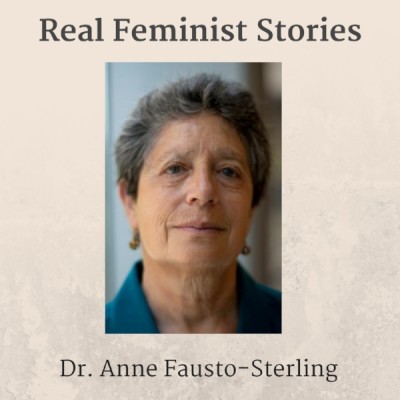Anne is an Emerita professor at Brown University and an expert of biology and gender studies. I first discovered Anne’s work ten years ago when I read her book “Sexing The Body,” which had a huge influence on the kind of academic work I ended up pursuing around challenging the gender-binary in sports. “Sexing The Body” was the first time I was introduced to the concept of how we socially construct the body and it deeply resonated with and interested me. Anne is the author of three books and over 60 scholarly articles related to feminist and scientific theories. Anne’s work has centered on challenging our ideas about the nature/nurture divide, women and gender in science, intersexuality, homosexuality, the construction of heterosexuality, and the intersections of race and gender in science. She is an extremely important scholar in the field of women, gender, sex, and sexuality, and I am honored to have her as a guest on the Real Feminist Stories podcast.
“Sexing The Body” was the first source to bring to my attention intersexual professional athletes being discriminated against because they did not fit into the gender-binary. As a queer athlete, I became interested in the subject matter instantly, and ended up writing research papers on the matter. In this interview, I ask Anne more about this and whether she thinks gender categories are necessary in sports, a question I keep pursuing. We talk about the complexity of answering this complicated question.
Also, I ask Anne about what inspired her to write “Sexing The Body” and embark on this path of gender and science, and how she uses the dynamic systems approach to understand the social construction of bodies. Anne shares her research with how cultural conditioning has real physiological effects, and we explore how undoing gender conditioning is more than de-conditioning the mind, but, also, a deeper work within the body.
In addition, I ask Anne why she thinks we don’t validate bodies that live outside the norm, and she shares a couple of possible theories. These topics and conversations have been given more attention within feminist spheres and conversations, but I believe, as a culture, we still have a ways to go in understanding how society and the medical field constructs the body. If we want to challenge the construction of gender, we must, also, look at the construction of the body. For more exploration, press play to listen to this podcast episode! (Also available on iTunes!)
You can find more about Anne and her works on her Website.
Read the original posting on Real Feminist Stories here.
